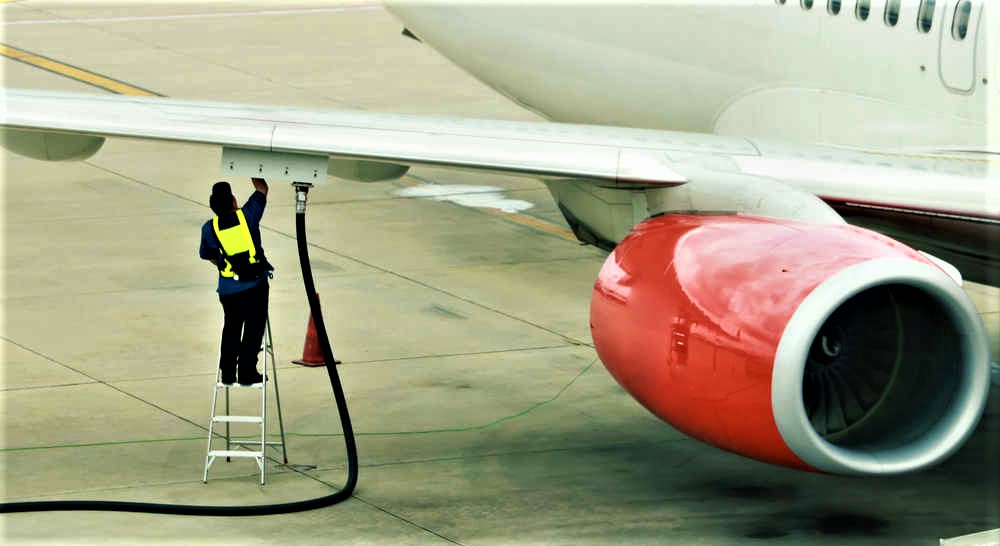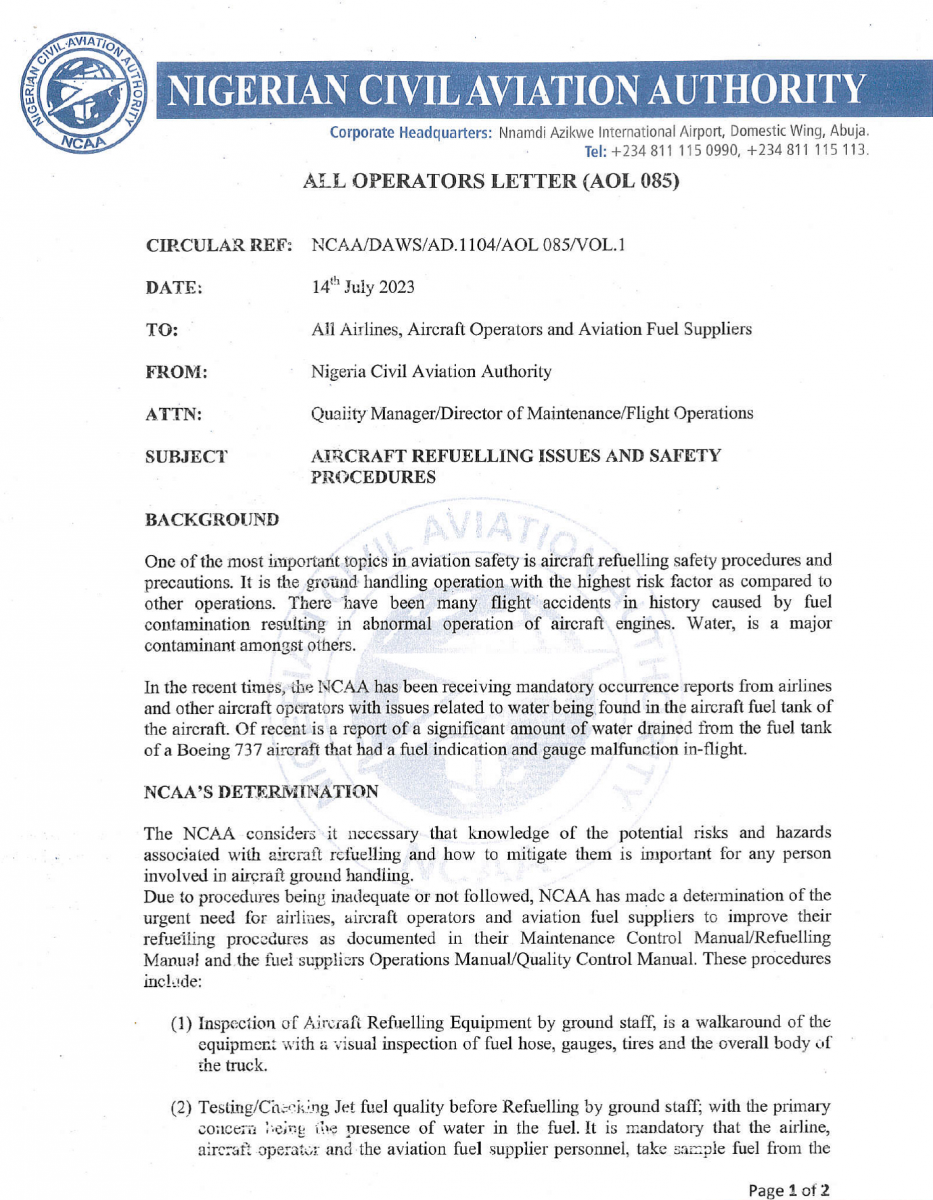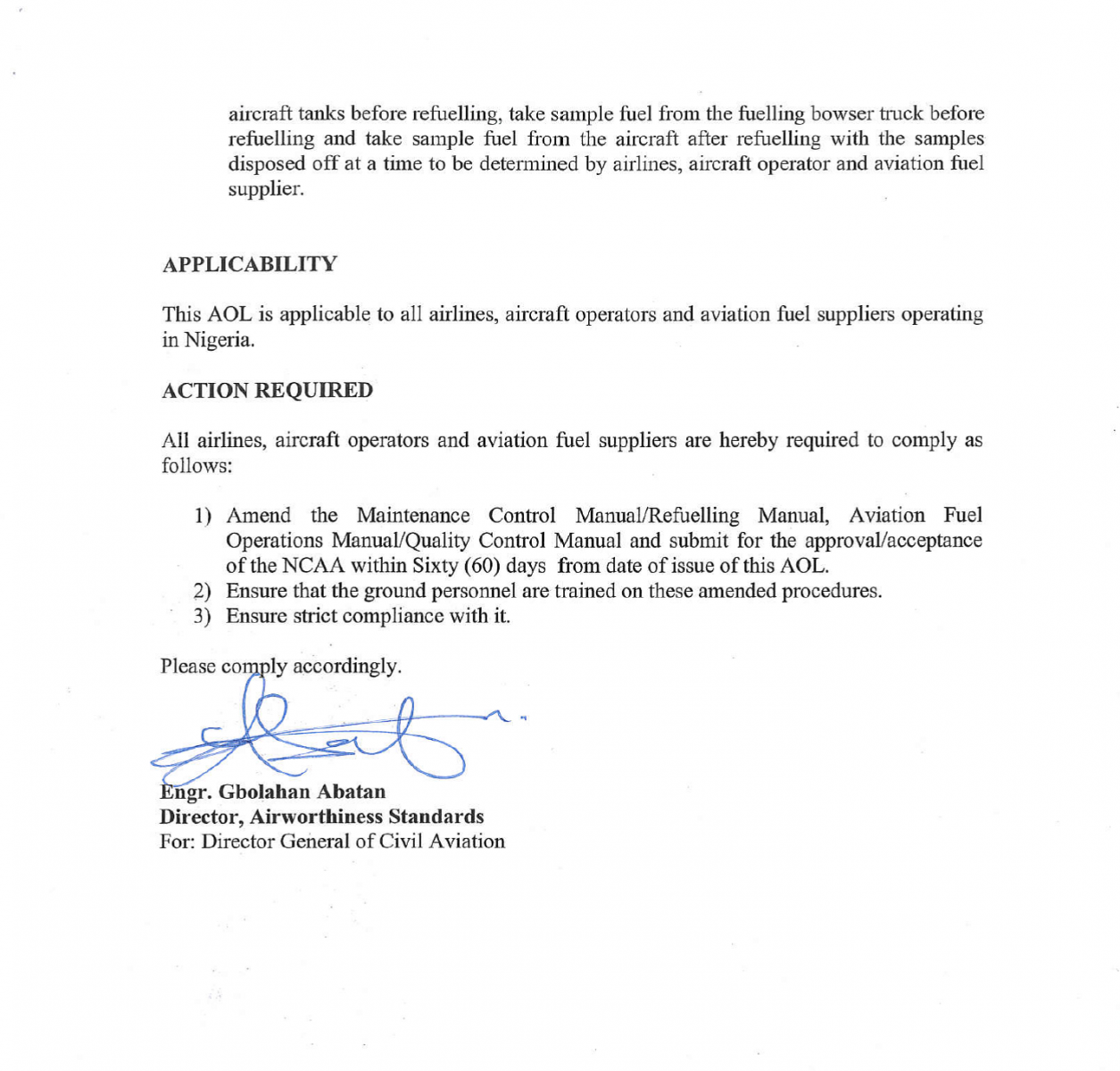


Nigerian Civil Aviation Regulator NCAA has responded with a regulatory crackdown , after it was found that the Airlines in Nigeria are using adulterated jet fuel with high water content for the flights.
The Nigeria Civil Aviation Authority (NCAA) has made it clear that the Boeing 737 aircraft series in the fleet of Max Air remains grounded pending the outcome of an investigation into the fuel contamination incident in the tank of one of its airplanes, including some other non-conformances.
To be specific, Max Air B737-300 with the registration number 5N-MHM had fuel contamination in the main fuel tanks, leading to the Auxiliary Power Unit (APU) shut down on the ground at Yola Airport on July 7, 2023.
NCAA is also going to investigate aviation fuel suppliers in the country’s aviation industry to determine the source of fuel contamination and find out their level of compliance to industry standards on fuel supply.
After the discovery, which grounded the Max Air aircraft, the NCAA dispatched a team of investigators to Lagos, Kano and Abuja, where the airline had refueled prior to the incident.
Reportedly, the incident of water contamination , that could have hazzardous effects or led to a major incident in the industry , the NCAA issued an AOL to alert operators of the risks and hazards associated with aircraft refueling.
Meanwhile, Capt. Musa Nuhu, the Director-General of Civil Aviation (DGCA), said that it was important to investigate the source of aviation fuel contamination in the industry in order to prevent a recurrence.
Nuhu also explained that the NCAA issues the fuel marketers’ licenses and would not hesitate to withdraw the licenses issued if any one of them is found wanting.
That's not all, the Nigerian Civil Aviation Authority (NCAA) has also issued an All Operator’s Letter (AOL) to alert the airline operators over fuel contamination incidents in the aviation industry.

The AOL085, that has a reference number , NCAA/DAWS/AD.1104/AOL085, dated July 14, 2023, addressed to all airlines, aircraft operators and aviation fuel suppliers, was signed by the Director of Airworthiness Standards of NCAA, Gbolahan Abatan.
The AOL issued by the Regulatory Authority says,
“One of the most important topics in aviation safety is aircraft refueling safety procedures and precautions. It is the ground handling operation with the highest risk factor as compared to other operations."
“There have been many flight accidents in history caused by fuel contamination resulting in abnormal operation of aircraft engines. Water is a major contaminant, amongst others."
“In recent times, the NCAA has been receiving mandatory occurrence reports from airlines and other aircraft operators with issues related to water being found in the aircraft fuel tank of the aircraft. Of recent is a report of a significant amount of water drained from the fuel tank of a Boeing 737 aircraft that had a fuel indication and gauge malfunction in-flight,” the letter said.

The NCAA, however, advised all airlines and operators to improve their refueling procedures as documented in their maintenance control manual/refueling manual and fuel suppliers operation manual/quality control manual.
The procedures, it stated, include inspection of aircraft refueling equipment by ground staff with a visual inspection of fuel hose, gauges, tires and the overall body of the truck.
The NCAA has also asked the carriers for testing, and checking of jet fuel quality before refueling by ground staff with the primary concern being the presence of water in the fuel.
